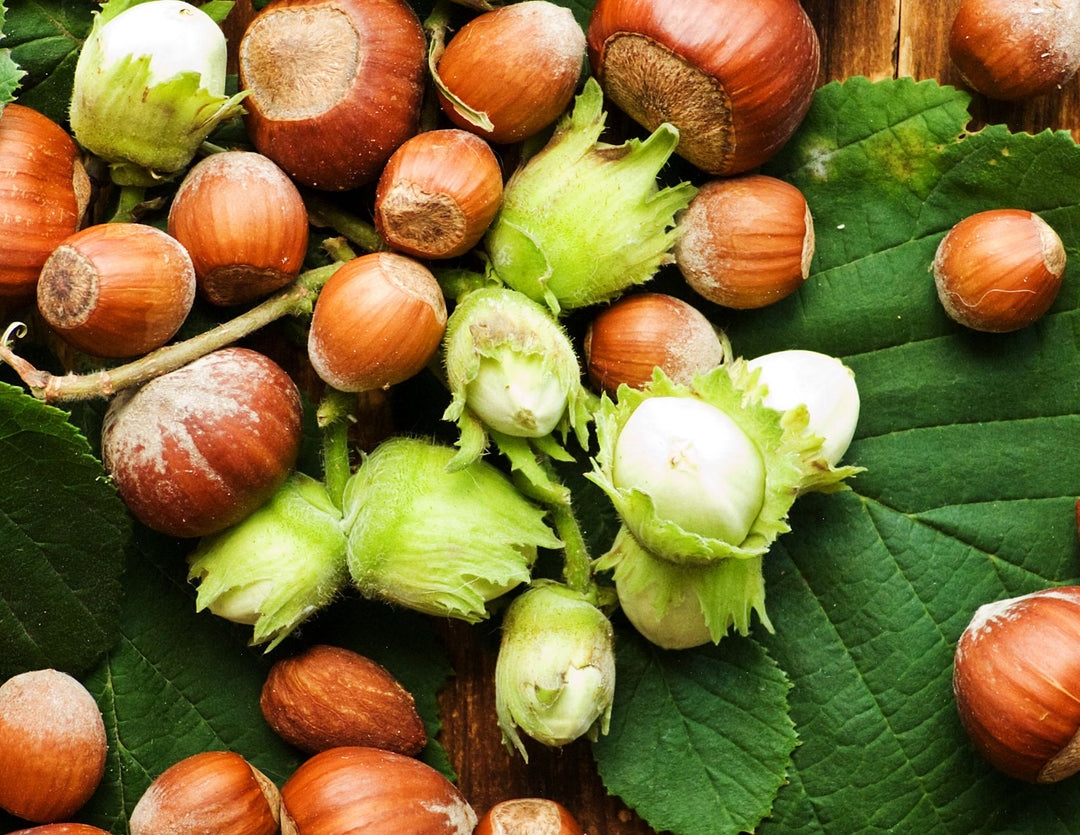The Mind-Body Connection: The Surprising Science of Diet and Mental Health

The mind-body connection is a fascinating topic that has been studied extensively in the last few years. It refers to the idea that the mind and body are not separate entities, but rather are interconnected and influence each other in profound ways. This connection has been shown to have a significant impact on our overall health and well-being, including our mental health. In fact, recent research has uncovered a range of surprising and intriguing links between nutrition and mental health, suggesting that diet could be a powerful tool for improving our mental well-being. By understanding this connection, we are empowered to address both our physical and mental health by embracing healthy eating habits.
The Brain-Gut Axis
Science shows that we actually have two brains. In addition to the brain in our heads, we also have a second brain located in our gut. This second brain is called the enteric nervous system or ENS. The ENS is made up of more than 100 million nerve cells in our gastrointestinal tract. The gut-brain axis is the reciprocal communication between our central and the enteric nervous system. In other words, the emotional and cognitive centers of our brain are linked to intestinal functions. Recent research on the gut-brain axis is transforming our understanding of the links between digestion, mood, health, and cognition. Studies show the importance of gut microbiota in these interactions and that changes in the microbiota can change our brain physiology and behavior.
Our gastrointestinal tract is home to a dynamic population of trillions of microbes. These microorganisms comprise gut microbiota. Gut microbiota has co-evolved with us over the course of thousands of years into a complex and mutually beneficial relationship. The microbiota offers us many benefits, ranging from maintaining our immunity and protecting us against pathogens to harvesting energy. While our unique microbiota is created in the first two to three years of our life, scientists have come to understand that diet is one of the most significant factors in shaping the composition of gut microbiota over the course of our lifetime. As a result, they are increasingly addressing the role of dietary habits in supporting optimal mental health.

The Role of Diet in Mental Health
Evidence shows that eating Western-style diets full of processed, fried and sugar-rich foods and low in plants leads not only to a loss of diversity in the microbiota, but also to the annihilation of beneficial microbes and the increase of pathogens. This disruption of microbiota and the enteric nervous system has been linked to inflammation in the central nervous system, which contributes to a variety of disorders like depression, anxiety, Alzheimer’s diseases, Parkinson’s disease, and stroke. However, eating diets replete with fruits and vegetables is now recognized as positively regulating gut-brain communication. This offers possibilities for preventing and treating common mental health disorders.
Diets consisting of a high consumption of fruit, vegetables, and whole grains—which are rich sources of bioactive compounds such as vitamins, antioxidants, and dietary fiber—are associated with a decrease in the risk of mental health disorders. Gut microbes play an important part in extracting these bioactive compounds. They are involved in the digestion, absorption, metabolism, and transformation of undigested macronutrients; and different microbes thrive on different macronutrients, which in turn helps increase their diversity and abundance.
You may have noticed that we describe Nüssli118° foods as nutrient dense. This means that the plant-based foods we prepare are rich in macronutrients like complex carbohydrates, lean protein, and healthy fats as well as micronutrients like vitamins and minerals. Because they are minimally processed, these nutrients are preserved, allowing our gut microbes to extract beneficial bioactive compounds from them, thus helping them to flourish. One particularly important macronutrient for shaping the gut microbiota are carbohydrates, particularly dietary fiber. A high-fiber diet promotes microbe diversity as well as an increase in beneficial microbes. Dietary fiber is also studied extensively for its impacts on mental health because of its effects on gut-brain axis communication.

Fiber, the Gut-Brain Axis, and Mental Health
Fiber is the edible parts of plants or similar carbohydrates that our bodies don’t digest or absorb. Instead, they are either partially or completely fermented in our large intestine. Diets low in fiber, like the typical Western diet, are associated with chronic diseases as well as mental health challenges like anxiety and depression. In contrast, high-fiber diets are linked to a reduction of both physical and mental health disorders. The vast majority of us fall short of eating an optimal amount of fiber each day. The recommended minimum amount by the FDA is 30 grams and most adults in North America only consume an average of 17 grams; and research suggests that while 30 grams is adequate, fiber intakes greater than 30 grams a day would be more beneficial. Daily fiber intake of 50 to 60 grams is optimal.
High fiber consumption nourishes our microbiota, promoting an abundance of beneficial microbes, some of which produce neurotransmitters — compounds that send messages throughout our nervous system. One such neurotransmitter is serotonin. In fact, 90 to 95 per cent of serotonin is produced in our gut. Research shows that serotonin is a key neurotransmitter in the gut-brain axis, and microbiota are crucial in serotonin signaling. When we have normal levels of serotonin, we feel happier, calmer, and more focused. Low levels of serotonin, however, are linked to depression.
Along with fruits and vegetables, nuts, which are commonly consumed in plant-based diets as well as the Mediterranean diet, are rich in fiber. A review and analysis of randomized controlled trials on the effect of nut consumption on gut microbiota concluded that they not only increase the diversity of beneficial microbes, they also stimulate their growth and activity.
Nuts are a key ingredient in Nüssli118° snacks and desserts. We use sprouted nuts in our recipes. Sprouted nuts are raw nuts that have been soaked in water until they begin to germinate, which is the first stage of plant growth. Sprouted nuts and seeds have more nutrients and energy. The sprouting process reduces their naturally occurring phytic acids, tannins and enzyme inhibitors, unlocking enzymes that make them more digestible and increasing their vitamin content. To complete the process, we dehydrate our now activated nuts and seeds at 118°F to preserve their living enzymes. Because of this process, whether you choose a savory snack like one of our nut clusters or a sweet treat like a brownie, you’re experiencing the benefits of the power of food as medicine.
Conclusion
Understanding the mind-body connection through the gut-brain axis is crucial for achieving optimal mental health. It's important to remember that it’s not just about the mind; it's about our whole person: by taking care of our bodies, we can take care of our minds. Consuming more nuts, fruits, vegetables, whole grains, and legumes can provide the necessary nutrients that help our microbiota flourish, promoting brain function and reducing the risk of mental health disorders. By making conscious choices about what we eat and how we treat our bodies, we can improve our mood, reduce stress, and boost our overall mental well-being. So, why not take the first step towards a healthier and happier life by incorporating more plant-based foods into your diet? We’re here to help you do so. Your mind and body will thank you for it.
Sources
Berding, Kirsten et al. “Diet and the Microbiota-Gut-Brain Axis: Sowing the Seeds of Good Mental Health.” Advances in nutrition (Bethesda, Md.) vol. 12,4 (2021): 1239-1285. doi:10.1093/advances/nmaa181
Carabotti, Marilia et al. “The gut-brain axis: interactions between enteric microbiota, central and enteric nervous systems.” Annals of gastroenterology vol. 28,2 (2015): 203-209.
Kim, Chong-Su et al. “Sources of Dietary Fiber Are Differently Associated with Prevalence of Depression.” Nutrients vol. 12,9 2813. 14 Sep. 2020, doi:10.3390/nu12092813
McKeown, Nicola M et al. “Fibre intake for optimal health: how can healthcare professionals support people to reach dietary recommendations?.” BMJ (Clinical research ed.) vol. 378 e054370. 20 Jul. 2022, doi:10.1136/bmj-2020-054370
Niesler, B., Kuerten, S., Demir, I.E. et al. Disorders of the enteric nervous system — a holistic view. Nat Rev Gastroenterol Hepatol 18, 393–410 (2021). https://doi.org/10.1038/s41575-020-00385-2
Thursby, Elizabeth, and Nathalie Juge. “Introduction to the human gut microbiota.” The Biochemical journal vol. 474,11 1823-1836. 16 May. 2017, doi:10.1042/BCJ20160510
Zhu, S., Jiang, Y., Xu, K. et al. The progress of gut microbiome research related to brain disorders. J Neuroinflammation 17, 25 (2020). https://doi.org/10.1186/s12974-020-1705-z





